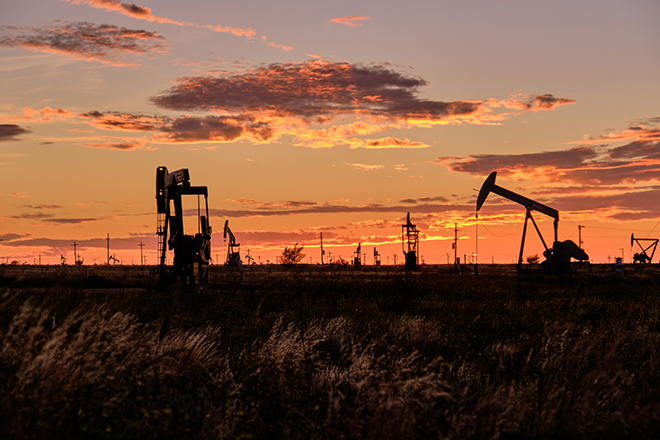S&P Global Offerings
Featured Topics
Featured Products
Events
S&P Global Offerings
Featured Topics
Featured Products
Events
S&P Global Offerings
Featured Topics
Featured Products
Events
Banking & Capital Markets
Economy & Finance
Energy Transition & Sustainability
Technology & Innovation
Podcasts & Newsletters
Banking & Capital Markets
Economy & Finance
Energy Transition & Sustainability
Technology & Innovation
Podcasts & Newsletters
S&P Global Offerings
Featured Topics
Featured Products
Events
11 Mar, 2021

By Allison Good

|
After a year riddled with exploration and production bankruptcies, a Blackstone-backed driller's IPO will gauge the market's appetite for upstream equity funding. |
Vine Oil & Gas LP's initial public offering could be a litmus test for oil and gas drillers looking to tap the equity markets amid rising commodity prices, but it is still unlikely to open the floodgates, industry experts said.
The Blackstone Group Inc.-backed producer, which develops natural gas properties in the stacked Haynesville and Mid-Bossier shale plays in the Haynesville Basin of northwest Louisiana, announced on March 9 it was starting an IPO of 18,750,000 of its class A common shares at an expected initial offering price between $16.00 per share and $19.00 per share.
Vine Oil & Gas previously filed for an IPO in 2017 but withdrew that prospectus in 2019 as fallout continued from a crude oil price crisis that began in 2014. Equity funding still avoids the upstream sector, effectively prohibiting traditional IPOs.
The private company's second attempt comes amid greater skepticism from potential investors even as crude prices bounce back from record lows in 2020.
"The market is skittish that ... here we go again, the minute stock prices pop up everybody issues a bunch of equity and we're back to partying like drunken sailors," Pickering Energy Partners LP founder Dan Pickering said in an interview.
At the same time, the Pickering Energy Partners founder added, Vine is paying down debt, exercising capital discipline and showing it can drill economically while West Texas Intermediate crude futures hover around $65 per barrel.
"The company is telling the story investors want to hear from public companies," Pickering noted. "If [the IPO] prices in the range with some substantial mutual fund long-only investors, that's encouraging for others that are hoping the public markets are open. If it's got pricing pressure or asks to downsize the offering or it's made up of a bunch of short-term investors, then it's going to be a cautionary sign for the rest of the industry."
According to Andrew Dittmar, an analyst at oil and gas market data firm Enverus, Vine also has the advantage of being a pure-play Haynesville gas entity. The only other driller with that same focus is Comstock Resources Inc., he said, but many other private drillers looking to go public do not have similar competitive edges.
"The mid-cap space on the public side is just pretty saturated," Dittmar explained. "I don't know anybody really wants to try to work their way into that without a really differentiating factor ... I don't know if there's any hidden niches that aren't already pretty well-covered."
John Sherman, a partner in the energy consulting firm Opportune LLP, said Vine may also pursue a reverse merger with a blank check company in a nontraditional IPO.
In 2020 a wave of special purpose acquisition companies, or SPACs, raised money for shell organizations focused on investing in the energy transition as fundraising for oil and gas declined. The deluge of renewable fuels-oriented SPACs has continued into 2021, but there are also indications that those companies may now be open to upstream targets.
Flame Acquisition Corp., which is primarily targeting the exploration and production sector, announced on Feb. 24 that it would price its IPO of 25,000,000 shares at a price of $10.00 per share. Chairman, CEO and President James Flores is the former CEO of Permian Basin producer Sable Permian Resources LLC and oversaw the firm's Chapter 11 bankruptcy process.
CENAQ Energy Corp., headed by former Freedom Oil and Gas Ltd. CEO Russell Porter, is similarly oriented and plans to issue 17,250,000 units at a $10 maximum each.
"We believe that there is a timely opportunity at this unique inflection point in the commodity price cycle to achieve attractive returns by acquiring and exploiting well-defined, high quality oil and natural gas exploration and production ("E&P") assets in proven basins," the SPAC said in a March 1 prospectus filed with the SEC. "The recent decline of commodity prices had an immediate and meaningful impact on the cash flows of E&P companies, creating ... potential business combinations for us."
Opportune's Sherman expects to see more upstream veterans follow suit.
"I imagine we’re going to see some more CEOs or bankers who know this space well … look at opportunities to make acquisitions of stranded or distressed assets," Sherman said in an interview.
There is precedent for SPACs taking advantage of troubled drillers. Riverstone Holdings LLC-backed shell companies merged with Centennial Resource Development Inc. and Alta Mesa Resources Inc. in 2016 and 2017, respectively. Alta Mesa has since filed for Chapter 11 protections and divested its assets.
The most recent upstream reverse merger was Pure Acquisition Corp.'s combination with HighPeak Energy Inc. in 2020.
Still, Pickering Energy Partners' Pickering remains skeptical that the market's renewed interest in oil and gas E&P SPACs has staying power.
"I'd say it's very tentative at this point and it's at least as much a function of the SPAC market as it is a function of the oil and gas market," Pickering said.
